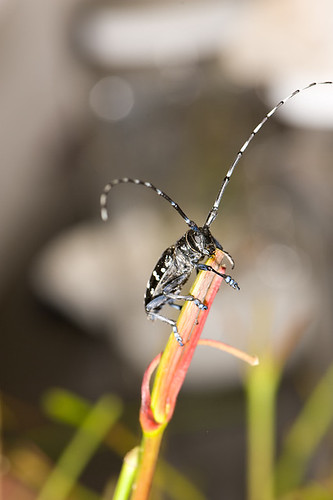
USDA’s Animal and Plant Health Inspection Service (APHIS) has declared August as Invasive Plant Pest and Disease Awareness Month. Invasive plant pests and diseases are not just a concern of scientists, farmers or horticulturalists; they concern us all. Invasive pests and diseases of plants—such as Asian citrus pysllid, European grapevine moth, Mediterranean fruit fly, and sudden oak death—can transform communities, harm our economy, and impact human health.
APHIS works to stop invasive pests and diseases of plants from arriving on our shores, and to address those that gained a foothold in our communities or that threaten agricultural resources, like citrus. Through safeguarding activities overseas, on the border and across the country, APHIS helps to ensure a diverse natural ecosystem and an abundant and healthy food supply for all Americans.
There have been successes. Invasive pests now eradicated include the Asian longhorned beetle in Chicago and parts of New Jersey. Mediterranean fruit fly and Asian Gypsy moth infestations in several states are now eradicated. But the fight to regulate, contain or eradicate invasive pests continues. In this effort APHIS works very closely with partners at the federal, state, county and local levels, and at universities, and nongovernmental organizations.
But, the most important partner in protecting agricultural and forested resources from invasive pests and diseases are those most familiar with their communities—individuals like you. By using available tools, you can join heroes like the Massachusetts homeowner who spied shiny black beetles spotted with white in her maples and searched the Internet for information out of concern for children handling the insects. That Internet search and subsequent report to agricultural officials led to the detection of a significant Asian longhorned beetle infestation.

This month, APHIS will post a series of blog entries here and also share invasive plant pest and disease information through our twitter feed. Please follow us. You can also use links and resources on our website to get involved. Armed with knowledge, you can help. It is a fight for our communities, our public lands, and for our agricultural resources.
